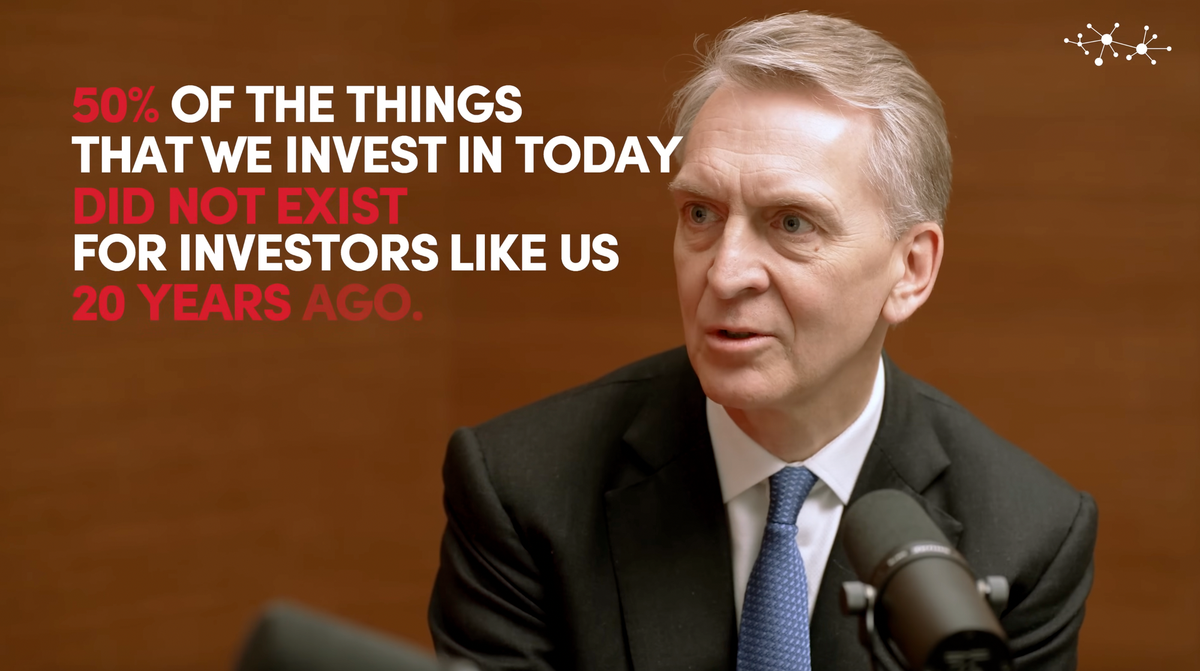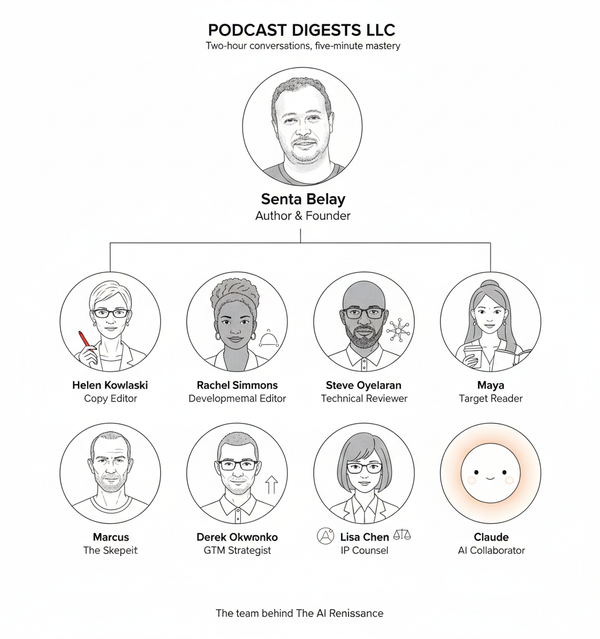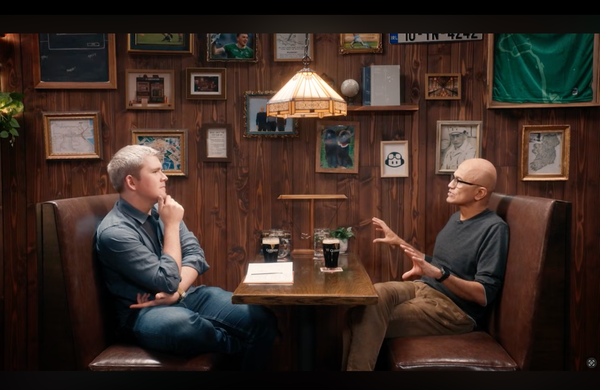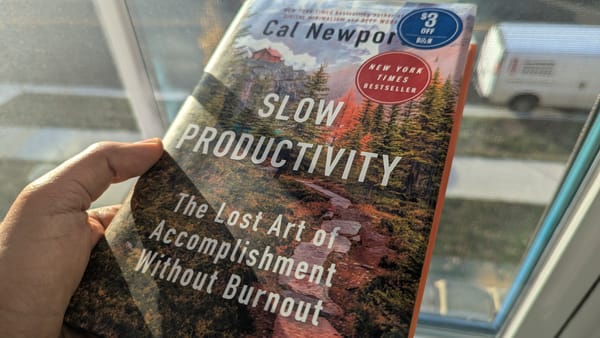Bruce Flatt on Staying Simple in a Trillion-Dollar World of Investing Shifts

Some leaders make their presence known with bold predictions. Bruce Flatt prefers quiet conviction. As CEO of Brookfield, he’s stewarded over a trillion dollars in assets; not with flash, but with a steady hand and long-term vision that has reshaped infrastructure investing globally. In this episode, he sits down with Shane Parrish, the host of "The Knowledge Project Podcast" for a rare kind of conversation: candid, grounded, and filled with clear-eyed thinking about what’s changed in investing… and what hasn’t. What unfolds is a deep, measured walk through decades of market shifts, the myths around scale, and the underrated power of staying simple when the world gets noisy.
The Heart of the Matter
This episode is a reminder that while markets evolve and asset classes shift, the core of investing: buy great things, hold them long, stay patient - still holds true.
- The fundamentals haven’t changed—just the surroundings.
Bruce kicks things off with a calm but clear message: the act of investing—buying quality, holding it long, earning steady returns—hasn’t changed in decades. But everything around it? Completely transformed. Indexing. Passive flows. Asset classes that didn’t even exist 20 years ago. What he’s getting at is this: it’s not that investors need to chase new tricks, but they do need to understand that the game board has expanded. - Passive investing is distorting the scoreboard.
He suggests that public markets today don’t reflect underlying value the way they used to. The rise of index funds has created strange patterns—where inclusion or exclusion from an index can move a stock more than business performance. What they were really exploring here was how much of today’s price signals are shaped by structure, not substance. - Half of what Brookfield owns today didn’t exist before.
And that’s not hyperbole. Fifty percent of the assets they manage now—renewable power, data centers, digital infrastructure—weren’t considered investable two decades ago. This is Bruce’s quiet way of saying: we didn’t just pivot, we evolved with the economy’s foundations. - Their playground is the backbone of society.
Bruce doesn’t reach for buzzwords. He talks about what they do in terms that feel almost old-school: roads, water, electricity. But there’s nothing dusty about it. These are critical systems in transition—from analog to digital, from public to private, from local to global. Brookfield owns the plumbing of modern life. - Governments are quietly stepping back.
One expectation years ago was that infrastructure investing would boom through privatization. But Bruce says what’s actually happened is governments simply stopped investing—and private firms like Brookfield filled the gap. The insight here is subtle but deep: markets don’t always take over through drama. Sometimes, they just walk in when no one else shows up. - Scale sounds impressive, but that’s not the point.
A trillion dollars under management sounds immense—and it is. But Bruce quickly demystifies it. In infrastructure, he says, that scale is just what’s required to play. He’s not brushing it off as meaningless—but he’s not romanticizing it either. What matters isn’t the number—it’s how thoughtfully it’s put to work. - Simplicity beats sophistication.
Brookfield often gets labeled as complex. Too layered. Too intricate. Bruce pushes back gently. At its core, he says, they do one thing: acquire great real assets and operate them well. All the structures, all the capital flows, serve that purpose. What he’s signaling is that simplicity, when executed consistently, becomes a strength that outlasts market fads. - The most investable assets are also the most boring.
There’s no talk of crypto or meme stocks here. Just highways, energy grids, and fiber optic cables. But Bruce lights up when discussing them—because these are the assets that touch real lives, generate real cash, and offer real durability. In a world obsessed with the next big thing, there’s something radical about betting on permanence. - The digital economy needs a physical spine.
This was a powerful throughline. Behind every cloud, every mobile app, every AI tool—there’s infrastructure. Data centers don’t just appear; they’re financed, built, and run. Bruce’s point is that even in the most advanced tech world, the edge still rests on physical, tangible assets. - Long-term thinking isn’t trendy—but it works.
Throughout the episode, Bruce never rushes his answers. And that in itself says something. He’s playing a multi-decade game in a quarterly-results world. His tone suggests a belief that while speed wins headlines, patience builds empires. That might sound old-fashioned—but the results speak otherwise. - Quiet confidence can go a long way.
There are no flashy soundbites here. No “hot takes.” Just clarity, history, and calm reflection. And maybe that’s the real takeaway: when you truly know what you’re doing, you don’t need to shout about it. You just need to show up, stay consistent, and let the compounding do the talking.
Bruce Flatt, CEO of Brookfield



